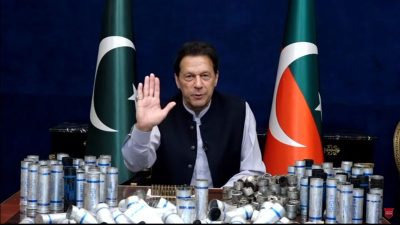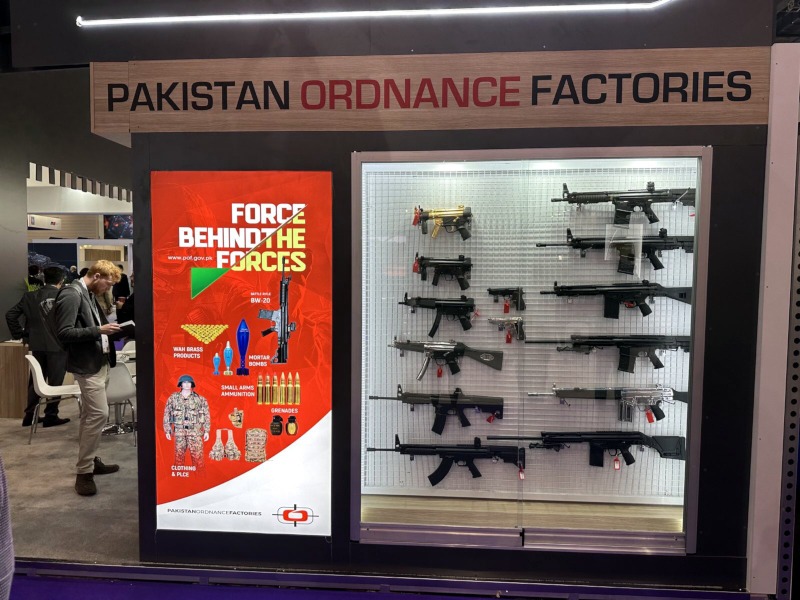Imran Who? The Risky Shift in UK Policy Towards Pakistan
An adviser to former prime minister Imran Khan says the UK’s silence over his imprisonment, and support for Pakistan’s military, is undermining the prospect of improved democracy in the country.

All Global Research articles can be read in 51 languages by activating the Translate Website button below the author’s name.
To receive Global Research’s Daily Newsletter (selected articles), click here.
Click the share button above to email/forward this article to your friends and colleagues. Follow us on Instagram and Twitter and subscribe to our Telegram Channel. Feel free to repost and share widely Global Research articles.
***
The British government is acquiescing in Pakistan’s imprisonment of former prime minister Imran Khan.
After being removed from office in a no-confidence vote in parliament in April last year, Khan was arrested last month and given a three year sentence for corruption. This was for violating election laws by having failed to properly declare gifts received from foreign dignitaries – an act which in Britain gets merely a warning.
These moves ultimately derive from the real power broker in Pakistan – its army, a close ally of successive UK governments. In the last 10 years, for example, the UK has exported £124m worth of military equipment to Pakistan while training its military officers at the Sandhurst army academy.
Strikingly, Britain has made no prominent public calls to release Khan, unlike numerous press releases issued by the UK government calling on Russia to release opposition figure Alexei Navalny.
For the UK, it’s business as usual. This month, Pakistan’s state-owned weapons manufacturer exhibited at a major arms fair in London. In May, the head of the British army, General Patrick Sanders, even visited Pakistan’s Chief of Army Staff (COAS), General Asim Munir.
The visit took place amid a crackdown on Khan’s political party, the PTI, which has a huge support among the Pakistani diaspora in UK and US.
The visit also came while British nationals of Pakistani descent who are Khan supporters were being seized in the country, for which family members in Britain were contacting the UK Foreign Office for assistance.
Why is Britain so keen to cosy up to the Pakistani military?
Constant Intelligence
Watching the Twin Towers collapse after being hit by hijacked planes convinced Sir Hilary Synott, Britain’s then high commissioner in Pakistan of shifting times ahead for Britain and the West’s policy towards the government in Islamabad.
He wrote that
“the position completely changed post 9/11. The Western approach of finger-wagging at Musharraf [the then military dictator in Pakistan] and pressing for democracy changed”.
He thought the West needed to respond with military force in Afghanistan and purge growing extremism by forces like Al Qaeda and the Taliban, and for that they needed Pakistan’s most influential player – its army.
Another shock for Britain came through the tragic 7/7 2005 terrorist attacks in London, which took 52 lives. Since then, British security services have become permanent clients of Pakistan’s Inter-Services Intelligence (ISI) Directorate C – feeding constant intelligence to their counterparts about dual nationals and others travelling to and from Pakistan.
The fear in British policymakers’ minds of another attack in Britain linked to Islamic extremism and Pakistani tribal areas, or Afghanistan, has drawn it closer to Pakistan’s security agencies and army than it would like to acknowledge.
The most important person for Britain in Pakistan is now not the elected prime minister but the Chief of Army Staff.
Preference for the Military
Britain’s preference for dealing directly with the military has been publicly on display as well, such as when in August last year, Pakistan’s then COAS General Qamar Javed Bajwa became the first Pakistani ever to be the sovereign representative of the Queen at Sandhurst’s military parade.
This happened at a time when political dissenters were facing human rights abuses in Pakistan, amidst a crackdown on media and freedom of expression.
General Bajwa, who retired in November last year, was accused of having removed at least two elected prime ministers, with one – Imran Khan – accusing him publicly of an assassination attempt against him.
It shows how blunt the shift in British foreign policy has been, preferring this unholy alliance concerned with “security” rather than championing the promotion of democracy and human rights.
UK high commissioners today primarily deal directly with Pakistani military chiefs, the ultimate heads of the hybrid regime, where political rulers are ineffective while real power and decision making lies with the powerful military.
Historically, the dynamics of the relationship between Britain and Pakistan were rather different and certainly not security-centric. There is a deeper connection and history, given the colonial past with a fully anglophile education system, and civil service and feudal background politicians who still romanticise the good ole’ times of the Empire.
Britain played an important role in building institutions and systems in Pakistan post-independence and most high commissioners enjoyed close relations with policy makers. There was a pattern of posting individuals with linkages to Pakistan or the subcontinent that gave them personal connections.
High Commissioners
Before 9/11, the profile of high commissioners appointed to Pakistan suggested Britain was more focused on promoting democratic processes in the country. Post-9/11, all the UK’s top diplomats in the country have been “security” experts or served in security roles.
The latest appointee is Jane Marriott, a former Director of the UK’s International Counter-Terrorism Unit. One of her recent predecessors, Thomas Drew (2016-2019), was previously the Foreign Office’s national security director and is now its director of defence and intelligence.
Another recent high commissioner, Christian Turner, was the deputy national security advisor to prime minister Theresa May.
Both Drew and Turner enjoyed very close relationships with General Bajwa, who is known as the architect of the newer version of hybrid rule in Pakistan.
There is an interesting public display of affection from a cricket match in 2019 at Lords where Bajwa sat alongside Drew and the head of the UK military, General Nick Carter. The photograph showcases the importance of personal connections and the UK’s preference for doing business with the army, more so than with a fragile civilian Pakistani polity that struggles to survive.
The Pakistani military and ISI’s promotion of security fears, at times exaggerating links between Islamic extremism and the British Pakistani diaspora, makes them appear a useful resource in dealing with threats and prolongs hybrid rule in Pakistan.
In return, the UK is assisting Pakistani army generals way more than it would like to publicly admit. A recent story by the Intercept reveals the Pakistani military sold ammunition worth over $900m to Ukraine in a secret deal and in return the US helped Islamabad secure an IMF bailout arrangement, brokered by a British company.

Pakistan displays its weapons at the DSEI arms fair in London, September 2023. (Photo: Matt Kennard / Declassified UK)
Anti-corruption
It seems UK high commissioners are doing more than just parading Pakistani generals to one-off cricket matches. The Pakistani military is the richest corporation in the country, operating as a business and utilising state resources but not sharing its profits with the national exchequer and the Pakistani public.
There are also credible stories about the unexplained wealth of many generals including Bajwa, raising serious concerns about the UK’s approach to accountability and anti-corruption.
It might be argued that Britain has a pragmatic approach of dealing with whoever is in charge in Pakistan and that fixing its failing democracy, lack of the rule of law and media freedom is not hers to do.
However, in the longer term, the only way of dealing with security concerns from radicalisation is through having a functioning democracy in Pakistan and for the Pakistani diaspora in the UK to believe that Britain is not supporting any abusive, despotic regime for its short-term gain.
*
Note to readers: Please click the share button above. Follow us on Instagram and Twitter and subscribe to our Telegram Channel. Feel free to repost and share widely Global Research articles.
Shahzad Akbar is a Pakistani politician and barrister who served from 2018-22 as an adviser to prime minister Imran Khan on domestic and accountability issues, in the capacity of a minister in Cabinet.
Featured image: Pakistan’s former Prime Minister Imran Khan gives a speech from his home on March 15, with tear gas cannisters that had been fired at protesters by the police trying to arrest him (Source: Geopolitical Economy Report)

